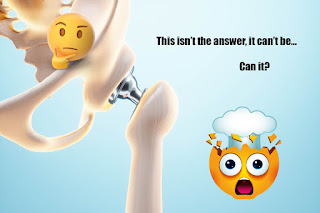The Science of Depression: What Happens in Your Brain?
Depression is a complex mental health condition that has been linked to various factors, including genetic predisposition, environmental stressors, nutritional deficiencies, and chemical imbalances in the brain. But what exactly happens in your brain when you're dealing with depression?
I recently was treated for leukemia a few years ago and received stem cells on December 24 of 2019. The recovery from that was kind of hideous with some GVHD (Graft vs Host Disease). And spending so much time off from work, which ended up being kind of permanent for the moment, cause changes in diet, and depression, which most likely lead to more issues with my cognitive decline.
One of the things I started doing was researching medical papers to see if there was anything about repairing the brain matter that gets destroyed during chemo. And one of the papers led me to the answer of what was similar to Adderall, Davis, et. al., (2013) wrote about different medications and also more in terms of other symptoms. And his paper was not the only one that I came across that corroborated that.
Another person I watch and listen to rather on YouTube is Andrew Huberman (Huberman, n.d.) I found him first on TikTok, but his material and posts are based on his background as a neurophysiologist. I love how he puts things together when he talks about anything. He had a few posts about all of the neurotransmitters I am posting about today and that is where most of my material has come from for this post. (https://www.youtube.com/@hubermanlab)
Here's a brief overview:
1. **Neurotransmitters:** These are the brain's chemical messengers that facilitate communication between nerve cells. Three neurotransmitters that play a significant role in depression are serotonin, norepinephrine, and dopamine. Imbalances in these chemicals can affect mood regulation, leading to depressive symptoms.
2. **Serotonin:** Often referred to as the 'feel-good' hormone, serotonin helps regulate mood, sleep, appetite, and overall feelings of well-being. Reduced levels of serotonin have been linked with depressive symptoms.
3. **Dopamine:** This neurotransmitter is associated with pleasure and reward. People suffering from depression may have lower dopamine levels, which could explain the lack of interest or pleasure in activities they used to enjoy.
4. **Norepinephrine:** This neurotransmitter and hormone is involved in the body's stress response. Imbalances in norepinephrine levels can contribute to the symptoms of depression, such as anxiety, decreased motivation, and low mood.
5. **Brain-Derived Neurotrophic Factor (BDNF):** This protein promotes survival, growth, and formation of new synapses in the brain. Lower levels of BDNF have been found in individuals with depression, potentially affecting neuroplasticity and leading to atrophy of certain areas of the brain.
6. **The Hippocampus:** This region of the brain, associated with memory and emotion, tends to be smaller in people with depression. It's believed that ongoing exposure to stress hormones may inhibit the growth of neurons in the hippocampus, leading to its reduced size.
7. **The Prefrontal Cortex:** This part of the brain is associated with decision-making, personality expression, and social behavior. It often has reduced activity in people with depression, which can contribute to feelings of worthlessness and guilt.
8. **The Amygdala:** This almond-shaped set of neurons is involved in processing emotional responses. In people with depression, the amygdala can become enlarged and hyperactive as a result of constant exposure to high levels of stress hormones.
9. **Neural Circuits and Networks:** Abnormalities in the communication between different regions of the brain (neural circuits and networks) have been associated with depression. Advances in neuroimaging technologies are helping scientists better understand these connections and develop more effective treatments.
Understanding the science behind depression underscores the fact that depression is not a sign of weakness or a character flaw - it's a medical condition with identifiable biological underpinnings. It also provides hope in the form of ongoing research aimed at better understanding these mechanisms and developing more effective treatments.
My understanding of these Neurotropics or Neurotransmitters is that if you are short on any of these and also short on fat (in my opinion) in the diet your cognitive ability is going to be impaired compared to if you have enough of the nutrients.
Please note: If you or someone you know is suffering from depression, it's important to seek help from a mental health professional. This article is intended to provide information and increase awareness, but it's not a substitute for professional advice, diagnosis, or treatment.

Comments